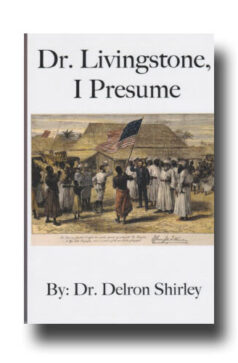Likewise the Spirit also helpeth our infirmities: for we know not what we should pray for as we ought: but the Spirit itself maketh intercession for us with groanings which cannot be uttered. And he that searcheth the hearts knoweth what is the mind of the Spirit, because he maketh intercession for the saints according to the will of God. And we know that all things work together for good to them that love God, to them who are the called according to his purpose. (Romans 8:26-28)
In the book of Romans, Paul made it explicitly clear that the Holy Spirit must take an active role in our prayers if we want them to be successful. Because the Holy Spirit knows the mind of God, He can help our prayers by assuring that they are in the perfect will of God. At that point, we can know unquestionably that all things are going to work out for our best! What a promise!
The real power of prayer is the guidance of the Holy Spirit and the real substance of prayer is God’s Word. Unfortunately, we all too often pray prayers that originate in our own imagination and desires. Such prayers may not be related at all to the will of God concerning the matter. On the other hand, we know that the Holy Spirit is always in tune with the will of God and that the Word of God is the perfect expression of His will; therefore, if we are able to unite these two unquestionable articulations of the will of God as we pray, we can’t go wrong. In my personal life, I have found that I can combine this truth with a principle from Paul’s discussion on the armor of God – that praying in the Spirit is brandishing the sword of the Spirit (the Word of God) – to develop a surefire prayer model. (Ephesians 6:17-18) I begin by praying in tongues until the Holy Spirit quickens my spirit with an individual or situation that I should pray for that day. Invariably, He will also prompt me with a specific scripture that relates to that specific need. I then spend a few minutes proclaiming that scriptural promise or principle over the person or issue. Once I feel a peace about the prayer, I return to praying in tongues until I am prompted to pray for another individual of situation.
While we are considering the Holy Spirit’s association with the armor of God, let’s take a quick look at a passage that – although it does not specifically mention speaking in tongues or the Holy Spirit – reveals some powerful truth about the weapons of spiritual warfare. It seems totally obvious that the renewing of our minds that gives us victory over the destructive forces of the enemy would certainly be the work of the Holy Spirit – and likely through the process of speaking in tongues.
The weapons of our warfare are not carnal, but mighty through God to the pulling down of strong holds; Casting down imaginations…and bringing into captivity every thought to the obedience of Christ. (II Corinthians 10:4-5)
In this passage the Apostle Paul taught us that we have weapons that are mighty through God that enable us to subdue our carnal minds. Certainly, there are many aspects to the spiritual forces that we can use in this conquest of our rebellious thoughts; however, speaking in tongues is almost unquestionably one of them. After all, Paul’s definition of these weapons is that they are not carnal, or related to anything that could be mustered up by our natural abilities – a perfect definition of the supernatural gift of speaking in a language that we have not learned through our own human intellectual abilities.
Paul further explained that these weapons result in the dislodging of our erroneous human way of thinking and they establish our thoughts under the authority of Christ. In I Corinthians 14:14, he explained that praying in tongues is prayer from our spiritual man that supersedes anything that goes on in our human intellect. It does exactly what we expect of the mighty weapons of God – it brings the spiritual man into dominance and the carnal man into a submissive state. No matter how determined we may be, we can never renew our minds through our own efforts; yet, as we practice this spiritual exercise, we’ll find that it becomes easier and easier to have a Christ-like mentality.
Jesus called the Holy Spirit the Spirit of truth. (John 14:17, 15:26, 16:13) He went on to add that the Holy Spirit would speak to us all that He learned from Jesus and that the result would be that He would be able to reveal things that are to come. Jesus is the truth (John 14:6; Revelation 3:7, 14; 19:9, 11; 21:5; 22:6), but it is the Holy Spirit who reveals Him to us. Paul made a special point of praying for the believers at Ephesus that they would have the advantage of the revelatory power of the Holy Spirit because he knew that it is only through the Holy Spirit’s enlightenment that they would ever know the power residing in them through Christ. [I] cease not to give thanks for you, making mention of you in my prayers; That the God of our Lord Jesus Christ, the Father of glory, may give unto you the spirit of wisdom and revelation in the knowledge of him: The eyes of your understanding being enlightened; that ye may know what is the hope of his calling, and what the riches of the glory of his inheritance in the saints, And what is the exceeding greatness of his power to us-ward who believe, according to the working of his mighty power. (Ephesians 1:16-19) Writing to the Corinthians, he quoted the prophet Isaiah, Eye hath not seen, nor ear heard, neither have entered into the heart of man, the things which God hath prepared for them that love him. (I Corinthians 2:9, Isaiah 64:4) But he then immediately added, But God hath revealed them unto us by his Spirit: for the Spirit searcheth all things, yea, the deep things of God. (verse 10) Even the great prophet Isaiah didn’t have a clue as to all the victories we can experience when we are led by the Holy Spirit’s wisdom and revelation – the truth of Christ. Additionally, John 16:13 states, When he, the Spirit of truth, is come, he will guide you into all truth. There are so many deceptions in the world that can destroy us, but we have this powerful promise from Jesus that there is a source of truth that we can tap into and find security and safety.
Jesus told us that the Holy Spirit would glorify the Lord. (John 16:14) In a world that seems intent on dishonoring God, we really need this aspect of the work of the Holy Spirit. With Darwinism dominating our educational system, telling us repeatedly that random chance is to be credited for our incredibly complex and beautiful world, we need the Holy Spirit to prompt us to acknowledge His handiwork. (Psalm 102:25) With abortionists constantly shouting at us that human life is no more than a mass of tissue and is in no way a representation of the likeness of God, we need the Holy Spirit to remind us that the heavenly Father has fearfully and wondrously shaped us in His very image. (Genesis 1:27, Psalm 139:14) With the gay agenda constantly in our faces insisting that every form of perversion is acceptable, we need the Holy Spirit to glorify the Lord by giving us a pattern of the righteousness and holiness of the Father and the purity of the Son. (Psalm 29:2)
Another aspect of the work of the Holy Spirit is that He testifies of Jesus. (John 15:26) Again, we live in a desperate world that needs constant reminders of the life and love of Jesus. Not only does the unregenerate world need the Holy Spirit’s message, we believers need to be constantly made aware that Jesus has set a standard of holiness for us through His sinless life (Hebrews 4:15), but at the same time has made a way for us to be forgiven when we fail to measure up on that yardstick (Romans 3:23, I John 1:8). We, as well as the fallen world around us, need to be continually made mindful of the tremendous sacrifice that Jesus paid to demonstrate His love for us and of the amazing authority that He passed on to us through His unparalleled victory over death and the devil. Additionally, the Holy Spirit speaks about us as definitively as He does about the Godhead. The Apostle Paul declared that we have received the Spirit of adoption, whereby we cry, Abba, Father. (Romans 8:15) In the fallen world we live in, it is vitally important that we also have a voice that is calling out something about us as well as about God Himself. It is the work of the Holy Spirit to confirm inside each of us that God is not a distant reality, separate from us and our daily situation. No, we are His very children, and He cares for us!
Allow me to introduce the next biblical concept with a short anecdote. The little boy excitedly ripped open his package of animal crackers and very carefully began to lay them all out on the kitchen table. Suddenly, he began to cry and ran away from the table. His mother chased after him and drew his tearstained face close to her apron, asking what was the matter. Between the sobs, he blurted out that he had read the warning on the box, “Do not eat if the seal is broken.” Yes, it’s just a humorous little story, but the truth is that many of us are just as clueless as this little boy when it comes to understanding what the seal of the Spirit really is. You see, the seal of the Spirit has to do with our protection, not salvation. According to Ephesians 1:13, we are sealed with that holy Spirit of promise. The Holy Spirit has put a seal, a guarantee, on us that means that we cannot be tampered with. We are tamperproof and the devil doesn’t have any right to get a hold on us. Knowing this enables us to live our lives in continual victory. The seal of God on our lives marks us, distinguishes us, and preserves us. In biblical times when a letter or a package was shipped from one place to another, wax was put across the envelope or the package and a seal or signet ring was stamped into that hot wax to leave a distinct and unique identification. The seal served two purposes. It made sure that no one tampered with the package so that when it was received it would be in exactly the same condition as when it was sent. When the envelope still had the wax on it with the seal in place, everyone knew that no one else had opened it. Another thing a seal did was to identify who it was that put the package together. Each seal was characteristic of the individual sender. No two individuals had identical seals. It is impossible to counterfeit the unique seal that God has placed on each believer. Our seal is the Holy Ghost.
In 1982, seven individuals in the Chicago area died of potassium cyanide poisoning from Extra-Strength Tylenol capsules that had been tampered with after the medicine was delivered to the pharmacies in the area. These poisonings led to reforms in the packaging of over- the-counter substances and to federal anti-tampering laws. In 2003, a batch of worm-infested candy in India prompted the Cadbury Company to implement a new double-sealed wrapper for the customers’ protection. Just like these products in the grocery stores and pharmacies are marked, “Do not purchase if the seal has been broken,” we must ensure that the seal on our lives has not been broken. We can do this by always submitting to the conviction of the Holy Spirit when He reproves sin and error in our lives. (John 16:8) Each time we do a wrong thing, think a wrong thought, or have a wrong attitude, the Holy Spirit causes an uneasiness in our spirit man. Our proper response must be to immediately acknowledge His warning and repent of that error. If we refuse to yield to His wooing, we damage that seal and, therefore, jeopardize our purity by allowing contaminants into our hearts. Paul frequently mentioned his good or pure conscience. (Acts 23:1, Romans 9:1, II Corinthians 1:12, I Timothy 1:5, II Timothy 1:3) He knew the power of living his life free from tampering with the seal that the Holy Spirit placed upon his heart. I can imagine that he must have learned a lesson from the story of David’s defeat of Goliath. The stone from the shepherd’s sling found that singular point of vulnerability in the giant’s armor – the opening between his eyes. (I Samuel 17:49) Paul realized that the enemy could and would take advantage of even the slightest glitch in his armor in just the same way that David had taken advantage of the almost unnoticeable breach in the giant’s protection. Therefore, he constantly made sure that he kept his tamperproof seal intact through carefully guarding his conscience. Many preachers teach that we cannot trust our consciences – probably because they do not understand the difference between our natural conscience that can be corrupted and nullified and the Holy Spirit directed conscience that is always as accurate as God Himself. By simply looking into the scriptures, we can see how important it is to follow this renewed conscience.
I say the truth in Christ, I lie not, my conscience also bearing me witness in the Holy Ghost. (Romans 9:1)
Now the end of the commandment is charity out of a pure heart, and of a good conscience, and of faith unfeigned. (I Timothy 1:5)
One of the first advantages that Jesus pointed out to His disciples concerning the work of the Holy Spirit was that He would reprove the world of sin, righteousness, and judgment. (John 16:8) Although some Bible teachers conclude that this verse does not apply to Christians since it speaks of the “world,” the Greek word used here is a generic term for the created order or all the humans within it. The term is also widely used to refer to the totality of the human population – which would include believers as well as unbelievers. The word “reprove” is actually a legal term referring to the cross examination of a witness in the court of law. If you’ve ever been present for a trial – or even watched a movie or television show depicting a trial – you can relate to the unique power of a skillful cross- examination. Once the attorney for the prosecution “grills” the witness with questions that elicit answers that imply the defendant’s guilt, the attorney for the defense will question the same witness about the same events; however, this time the questions will be asked from a carefully strategized angle to evoke answers that suggest the defendant’s innocence. One minute, we assume that the individual is guilty; the next minute, we are convinced that he is not. Why? Because of the cross-examination. The same thing happens when the Holy Spirit shows up in our lives. He asks questions from a totally new angle that makes us totally rethink our lives. What we’ve been able to excuse before suddenly becomes inexcusable. What we’ve previously seen as insurmountable now becomes manageable. What was a mountain before is miraculously transformed into a molehill and vice versa. That’s why it is expedient that we receive and welcome the Holy Spirit’s cross-examination of our lives and attitudes. This cross- examining comes in the form of a Holy Spirit directed conscience that is as radically different from our natural conscience as is the defense attorney’s examination from the prosecution’s attorney.
Allow me to illustrate what I mean by that statement with a story from the life of Dr. Lester Sumrall. When Dr. Sumrall was ministering in the remote jungles of South America, he preached to tribes of indigenous people who were so far separated from modern civilization that they had never seen a white man before. As he ministered to these primitive people, many of them opened their hearts to Jesus and prayed with Bro. Sumrall to become Christians. Then, a very unusual thing happened. The women came to him after the closing prayer and asked if he happened to have an extra piece of cloth in his backpack. Before he answered them, he asked why they were interested. Their reply was that after they had prayed with him they somehow felt that they should cover their breasts. Then Dr. Sumrall reminded them that no other women in the tribe were wearing anything above the waist and questioned why they felt that they wanted to do something that was different from everyone else. Their reply was that they didn’t understand but that they just felt that it was the right thing to do. What an outstanding example of how the Holy Spirit had reproved – cross- examined – these women without any human influence or involvement!
In Ephesians 4:30, we learn that God has sealed us unto the day of redemption, meaning that He has put an identifying mark on our lives that unquestionably indicates that we are uniquely preserved for a new perfect world until the day that we are delivered from this present corrupted world. Perhaps it is in Romans 15:16 that we get a glimpse into what that identifying mark is. Here the Apostle says that the Holy Ghost has sanctified us – an expression that speaks of being exclusively set apart for God and His purposes. It is the work of the Holy Spirit to prompt us toward activities, attitudes, and thoughts that fulfill the nature and purposes of God and to protect us from activities, attitudes, and thoughts that go against His nature and purposes. In Romans 8:14 and Galatians 5:16 we learn more about how this whole process works. It is by the leading of the Spirit. As we are led by the promptings of the Holy Spirit, our sonship in the heavenly family is established and our victory over the worldly influences that are contrary to that sonship is manifest.
Ephesians 4:30 also introduces the idea of grieving the Holy Spirit. It would be a lopsided argument to stress the Holy Spirit’s role in sealing us and ignore the possibility of our grieving Him. It seems to me that we can understand this principal a bit more clearly by considering the breastplate of righteousness that Paul described as part of the armor of God in Ephesians chapter six. Given the context of the Ephesian passage, I’m certain that the apostle was thinking more of the Roman soldier’s breastplate that would be worn by a soldier to protect his vital organs during battle than the Jewish high priest’s breastplate that was worn by the high priest of Israel as a means of receiving direction from God. However, I’d like to beg your indulgence for a few minutes to consider the suggestion that there are some significant messages to be gained if we also imagine the possibility that the Old Testament breastplate could also be playing into his thinking. Called the breastplate of judgment, this garment that bore the names of the tribes of Israel and contained the Urim and the Thummim – which were used to receive definitive messages from God – was to be worn close to the heart when the high priest went before the Lord. (Exodus 28:29)
The first relationship that I’d like to draw between the priest’s breastplate and the breastplate of righteousness would be that the priest’s garment had stones representing each of the tribes of Israel embroidered into the breastplate. In similar fashion, a warrior’s breastplate would often have the seal or crest of his country fashioned into the metal. In both cases, the breastplate served as a form of identification. Spiritually, our righteousness is a product of our identity with Christ. (Romans 3:22, 5:21; I Corinthians 1:30; Philippians 1:11, 3:9; II Peter 1:1) If we do not know Christ, we will never be righteous. However, in knowing Him, a righteousness that supersedes all our efforts is established through faith in Jehovah Tsidkenu – the God Who is Our Righteousness! Since the seal, or signet, of biblical times was the identifying mark similar to branding cattle in more contemporary history, it is easy to see how there could be a parallel with the priest’s breastplate that bore the stones of the tribes of Israel and the soldier’s breastplate that bore the symbol of Rome. However, the parallel doesn’t stop there. The priest’s breastplate contained a pocket in which the Urim and the Thummim were kept. These stones were a way in which the Lord revealed His will and judgment to the people of Israel. Perhaps there is even a parallel between these oracle stones and the qualities of faith and love that Paul identified with our breastplate in I Thessalonians 5:8; without faith and love, we will never manifest God’s will in our lives. In the same way, the Holy Spirit not only identifies us as the people of God but also speaks the will of God for our lives and identifies when we are in accordance with that will and when we are not. (John 16:8) The Holy Spirit’s job is to reprove of sin (when we are out of the will of God), of righteousness (when we are in the will of God), and of judgment (the consequences of being either in or out of the will of God). As the Holy Spirit continually draws our attention to what is right and wrong, He preserves our hearts just like a soldier’s breastplate protects his vital organs; therefore, he leads us into all righteousness. (Romans 8:4, Galatians 5:16) One last association that I’d like to consider is the closeness to the heart that was mentioned in Exodus 28:29 when describing the priest’s breastplate. Since the breastplate of a soldier was always worn over the chest to protect the vital organs, especially the heart, it would seem logical that Paul chose the breastplate as his symbol when he wanted to talk about righteousness because the heart has to be associated with righteousness. (Deuteronomy 9:5; I Kings 3:6; Nehemiah 9:8; Job 27:6; Psalms 15:2, 32:11, 36:10, 40:10, 64:10, 94:15, 97:11, 119:7; Proverbs 15:28; Isaiah 51:7; Jeremiah 20:12; Ezekiel 13:22; Romans 10:10; II Timothy 2:22)
In terms of relating the seal of the Spirit to the breastplate of righteousness, let me ask you just one simple question, “Where do you feel it every time you do something wrong or something good?” The obvious answer is, “In the heart.” It is a biblical principle that the emotions of our hearts are activated by our right and wrong actions. (Psalm 32:11, 64:10, 69:20, 73:21; Acts 2:37)
Solomon warned us to keep our hearts with all diligence because the issues of life flow out of them. (Proverbs 4:23) In the New Testament we see how God has made it easy for us. If we don’t grieve the Holy Spirit by disregarding His promptings, He will become a breastplate of righteous actions and thoughts to guard our hearts. When the Apostle Paul warned us against grieving the Holy Spirit, he used a Greek term that takes us far beyond what most of us have ever considered. His wording here speaks of a deep emotional wound like that which is inflicted when jilted by a lover. First of all, many of us never stop to think that the Holy Spirit is a personality with all the same qualities that we humans share. He has emotions and can be insulted and offended by our actions just as another human can. When we disregard an impression He has placed in our hearts, it is not just a nebulous, impersonal impulse that we are dealing with – it is a living, emotional personality that has been rejected. Even when we do realize that our ignoring or contradicting the wooing and prompting of the Holy Spirit is a personal offense against a living personality, we generally fail to understand the intensity of our actions. Just think how deep the wound and how long the healing process associated with the breakup of lovers or a divorce. Now take that to the infinite level on which God lives. This is the picture Paul was trying to paint for us to understand how significant our response to the Holy Spirit can be. Notice that he also intensifies the passage by adding that the Holy Spirit’s work is to seal us unto the day of redemption. The message that Paul is trying to communicate here is that our responses to the Holy Spirit’s directions are not just for the moment, but they have eternal consequences, affecting our eternal destinies.










